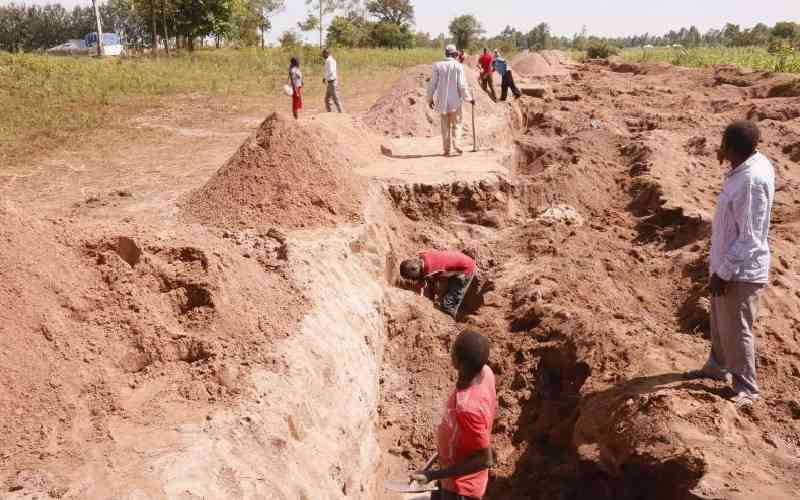×
The Standard e-Paper
Home To Bold Columnists

From their shelter, Jacob Omuchende and his colleagues have a panoramic view of the bridge over River Nzoia at Kaburengu in Webuye.
The thicket is barely three metres away from the riverbank, which also enables them to have a clear view of the wide river as it snakes its way to Budalang'i and finally, Lake Victoria.